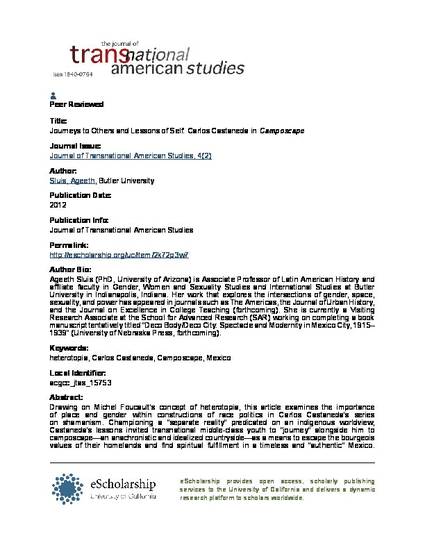
Drawing on Michel Foucault’s concept of heterotopia, this article examines the importance of place and gender within constructions of race politics in Carlos Castaneda’s series on shamanism. Championing a “separate reality” predicated on an indigenous worldview, Castaneda’s lessons invited transnational middle-class youth to "journey" alongside him to camposcape—an anachronistic and idealized countryside—as a means to escape the bourgeois values of their homelands and find spiritual fulfillment in a timeless and "authentic" Mexico. Castaneda’s work proposed new viable spaces of difference in Mexico, yet inscribed these spaces with a masculinist discourse that served to neutralize the gender trouble within the counterculture movement in both Mexico and the US.
This article was originally published in the Journal of Transnational American Studies. The author reserves all rights.
